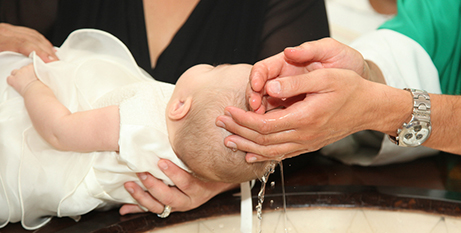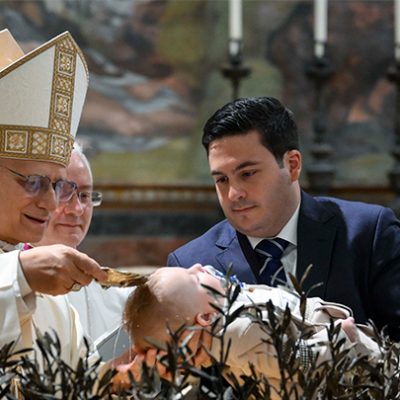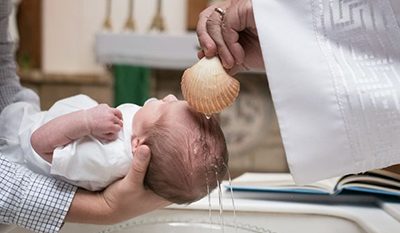
The Dicastery for the Doctrine of the Faith says it continues to receive reports of Catholics, including priests, finding out all the sacraments they have received are invalid because they were baptised years earlier with a formula that was not approved. Source: OSV News.
When a priest or other minister changes the words, gestures or material prescribed for the celebration of the sacraments, he can “rob” the faithful of what they deserve and make the sacrament invalid, the dicastery said in a note published on Saturday.
The note, Gestis Verbisque (Gestures and Words), passed unanimously by members of the dicastery during their plenary assembly on January 25 and was approved by Pope Francis on January 31.
Presenting the document, dicastery prefect Cardinal Victor Manuel Fernández wrote that in 2022 the cardinals and bishops who are members of the dicastery already had “expressed their concern for the multiplication of situations in which they were forced to acknowledge the invalidity of sacraments celebrated”.
As an example, the Cardinal cited baptism ceremonies where, instead of saying, “I baptise you in the name of the Father, and of the Son, and of the Holy Spirit,” the minister will say, “I baptise you in the name of the Creator” or “In the name of dad and mum, we baptise you.”
In 2020, the then-doctrinal congregation issued a note saying baptisms celebrated with the formula, “We baptise you” also were invalid, setting off a large-scale effort in several dioceses across the world to trace people who were invalidly baptised.
The sacraments they subsequently received, including first Communion, confirmation and even ordination also were invalid since only a baptised Catholic can validly receive the other sacraments.
“Modifying the form of a sacrament or its matter is always a gravely illicit act and deserves exemplary punishment, precisely because such arbitrary acts are capable of producing serious harm to the faithful People of God,” Cardinal Fernández wrote.
“While in other areas of the Church’s pastoral action there is ample room for creativity,” the cardinal wrote in the foreword, “such inventiveness in the area of the celebration of the sacraments becomes a ‘manipulative will’ and cannot be invoked.”
FULL STORY
Changing words in sacraments can make them invalid, dicastery warns (By Cindy Wooden, CNS via OSV News)






